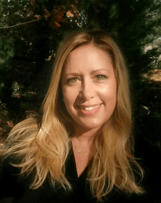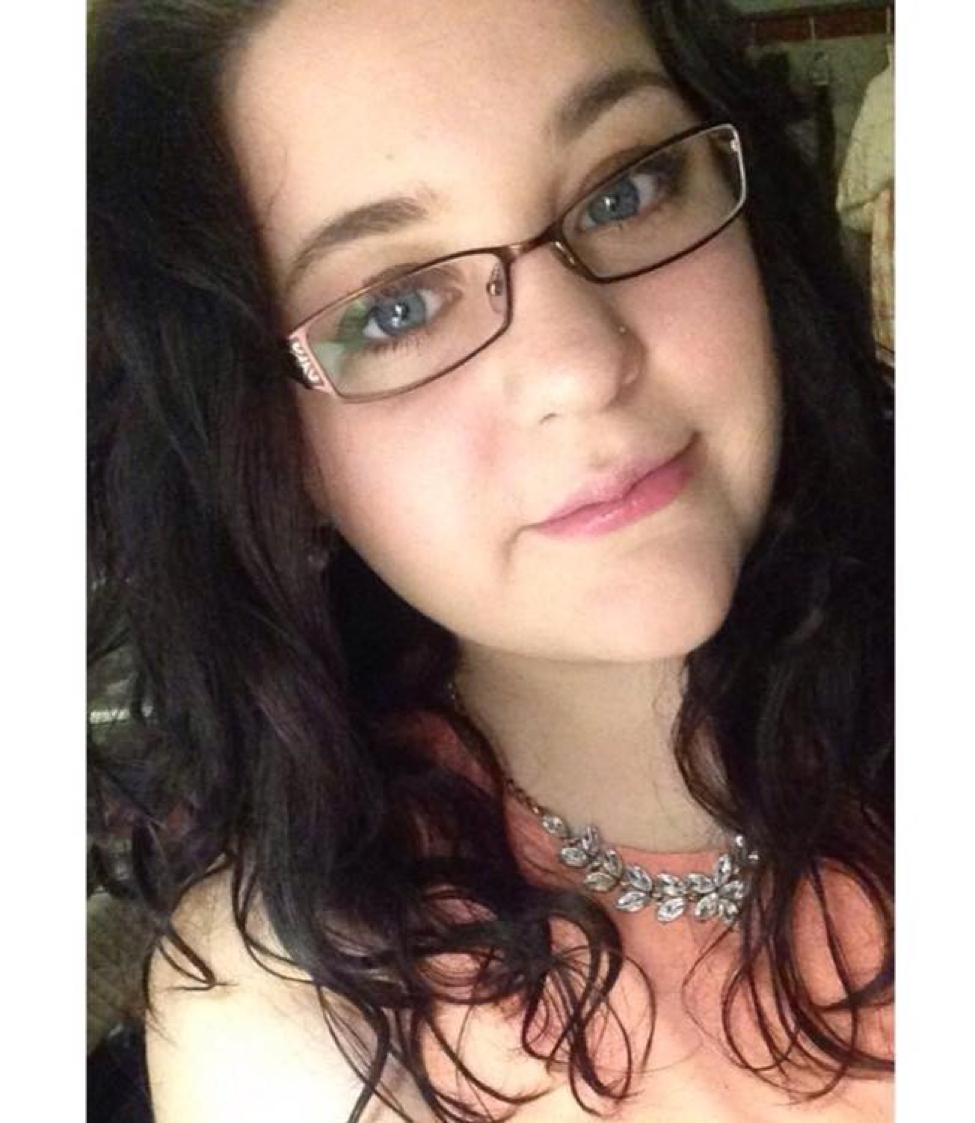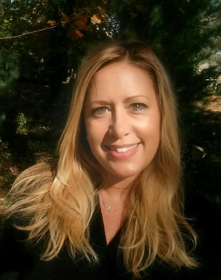Interviews from the Field: Stephanie Hicks
As a behavior analyst, Stephanie Hicks experiences the field of special education through multiple lenses. Stephanie works mainly with classroom teachers, parents and a variety of therapists on how to manage and teach behaviors to children with autism. In addition to observing behaviors and writing plans to increase or decrease those behaviors, Stephanie finds it extremely important to consider other factors while writing a plan for a child. She carefully considers developmental milestones, relationships, school anxiety, sensory issues and anything else that may influence behaviors. Additionally, Stephanie conducts workshops regarding new research and strategies for working with students who have autism.
 Stephanie received her bachelor’s degree in 1997 from St. Thomas Aquinas in Special Education. She then taught preschool special education in the Bronx for two years, while pursuing her master’s degree at Fordham University in Early Childhood Education. Following her master’s degree, she worked as a full-time ABA therapist and began consulting for families and districts across the United States, Canada and Japan. She is still consulting today. Additionally, Stephanie is currently writing her dissertation for her PhD in Advanced Studies of Human Behavior.
Stephanie received her bachelor’s degree in 1997 from St. Thomas Aquinas in Special Education. She then taught preschool special education in the Bronx for two years, while pursuing her master’s degree at Fordham University in Early Childhood Education. Following her master’s degree, she worked as a full-time ABA therapist and began consulting for families and districts across the United States, Canada and Japan. She is still consulting today. Additionally, Stephanie is currently writing her dissertation for her PhD in Advanced Studies of Human Behavior.
Q: What made you decide to be a behavior analyst?
A: I was teaching for a couple of years and realized I wanted to continue working with kids, but I wanted to work with more of a variety of kids. I wanted more variety in my day, but I wanted to stay in the field of special education. When I realized that this was a job, I was interested in becoming a behavior analyst because I realized I could help a lot more kids and a lot more teachers, parents and therapists. I have a passion for training professionals who are in the field but need strategies or new ideas.
Q: Is there one child you have worked with that has stuck with you throughout your time in the field?
A: Yes. There were a couple of little girls I worked with in the beginning of my work. I saw how they gained language skills, social skills, and academic skills. They were almost able to grow out of their ABA program, which of course isn’t always the result for every child. However, that was very rewarding and I kind of hold that within all the kids I work with; hoping they will go out and move on and progress within their program.
Q: Can you describe one of your typical work days?
A: Part of my job is giving workshops to schools and agencies that provide ABA therapy. I keep everybody up to date on new research and strategies. I also work in schools consulting with teachers and therapists within the school setting, as well as working with parents within the home setting. In the home setting, I work with children on daily living skills, going out into the community, and social skills. I enjoy variety, so each day I am in a different town, school, or house.
|
Q: What is the most challenging part of this job?
A: Working as a leader of the team that is working with the student can be challenging. In special education, there are so many different backgrounds, trainings and ways of doing things-but everybody’s end result is whatever is best for the child. Sometimes it is very difficult to get the professionals on the same page. Everybody has to be flexible, and realize that every professional has something to add to the program and if we all take each other’s suggestions and put them together, it is best for the child.
Q: What changes have you seen in your field within the past few years?
A: There is more research coming out about milestone development and relationship development. Again, we know that ABA works, that modifying behavior works for everybody. But I’ve been seeing people realize that it’s not always an ABC pattern-where a child does a behavior and then gets a reinforcement. I think it’s important to teach the child how to learn; giving them that wait time and giving them certain prompts that make them come up with the answer instead of giving them the answer. Although I think ABA is important, I think we are missing a whole piece of the development of a child by not looking at their thinking and emotions.
Q: What changes do you hope to see in your field within the next few years?
A: Unfortunately, I think in some districts, there’s always an issue of funding or working with the schedules of professionals. I hope to see it become easier for families to access the therapy that works for their child. There are therapies out there that are free and accessible, but it’s not always the right choice for the child. I think a lot of times kids are going without because of the lack of resources. I’m hoping parents will be able to more easily choose the therapy that works for their child
Q: What kinds of resources would you like to see more of in your work?
A: Some parents struggle to accept or understand what’s going on and what their kids need. I’d like parents to be able to go out into the community with a professional, and help them learn how to grocery shop with their child, or learn how to take a shower or go out to dinner. They need to practice these skills, but the accessibility to these services depends on what agency the parent has.
Q: Can you discuss See. Touch. Learn? What does the product do? How are schools using it?
A: It’s based off the Stages Learning Builder Cards, because they are bright, colorful, realistic and provide multiple examples. It’s an app for the iPad that is used with children in an ABA program, children with traumatic brain injuries, Alzheimer’s patients, or anyone who needs to work on language skills. When a child hears a prompt, and touches the correct answer, it will make a reinforcing sound or get bigger. With the app, you can carry hundreds and thousands of pictures with you without losing any or having them get damaged. Then, teachers can share lessons within their own schools or within a community. This is where teachers and therapists can write their own lessons and upload them into a community, and then any professional with the app can access the lessons. It also allows you to edit them, keep data, and keep notes that can be shared between professionals working with the same child.
Q: Do you use any other Stages Learning materials? Which ones and how do you use them?
A: When I first started working with Stages, I had already been using their products. It’s a company I believe in. Currently, we use a lot of their puzzles, which provide various examples of nutritious snacks, people working in common occupations like police officer etc. They have great bright posters and flashcards. And although we use See. Touch. Learn now, there are still some families who don’t have an iPad, so we use the Language Builder Cards with them.
Q: Do you think using iPads to teach children with autism holds promise? Why or why not?
A: I think using the iPad for children with autism and in ABA does hold promise. It is just another tool to use with some students who might just learn better on the iPad. I'm not an advocate of setting the child up to work on the iPad independently 100% of the time. However, sometimes it's necessary in a classroom to have centers where the children are on the iPad. The other part of the time they are on the iPad it should be used interactively with at least one other child or adult. When it's used properly, it can be a great tool to teach language!
Q: What is one thing you would like to share with parents of children who have special needs?
A: One thing that I want parents to know is that their relationship with their child who has autism is probably the best thing for the child’s development and success. When the therapists come, they’re not always there for the parents, they’re there for the child. Unfortunately, in too many cases the parent relationship starts to be put on the backburner because the parents’ responsibility and their importance on the team starts to get lost. The relationship with the parent or caregiver is the most important relationship in their life. I would tell parents to fight for that training that will teach them how to have their relationship with their child who speaks differently or sees things differently, or experiences life differently than a typical child.
Q: Lastly, do you have any advice for those who are interested in entering this line of work?
A: I would say to always be open. Starting out, I was focused on what I was trained in and would only stick to that. Then one day I realized that these other strategies were awesome too, and from there I started to embrace new ideas. Think about the child’s needs and how new strategies could help the child and their goals. Learn as much as you can; some of it you will never use, and some of it you would’ve thought you’d never use. The best thing you can have with you as a professional in this field is a giant toolbox filled with hundreds of strategies.

Kasey Salvatore
Kasey Salvatore is currently an undergraduate student at Lesley University majoring in special education and global studies. Her passion for special education was initially sparked at an early age through experiences with friends and family. More specifically, her mother was a special education teacher and therefore Kasey was introduced to the field throughout her childhood. Additionally, she has experience with children who have special needs through student teaching, friendships and volunteer opportunities. She also currently cares for a 5-year-old boy who has autism and a rare genetic disorder. Kasey’s ultimate goal is to work with children who have autism in an educational or therapeutic setting. In her spare time, Kasey can be found writing, drawing or spending time with friends and family.




